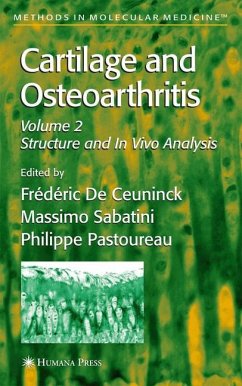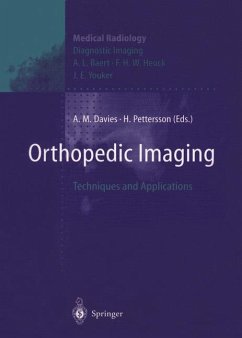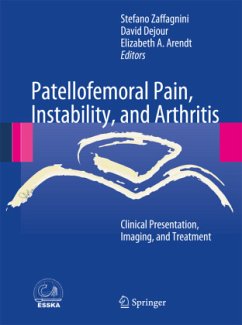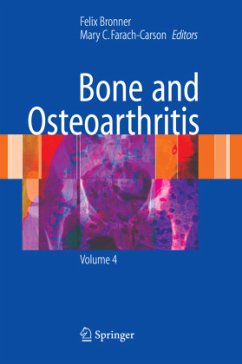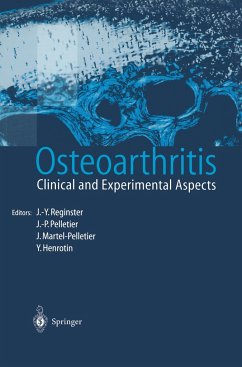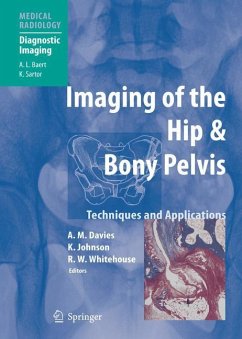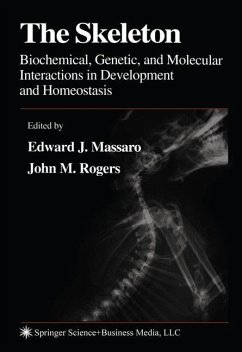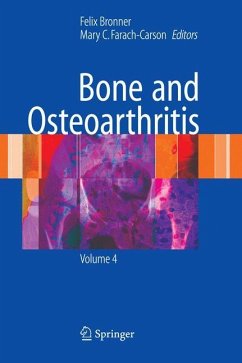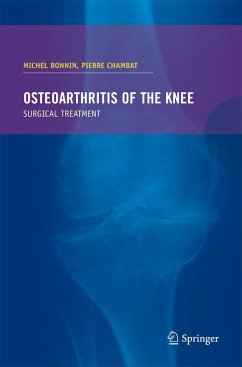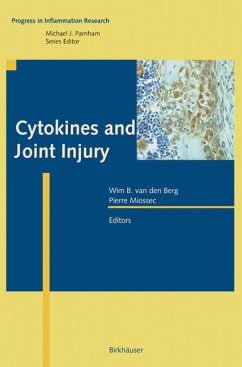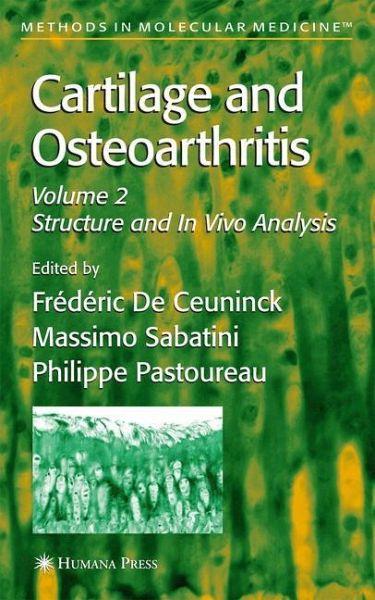
Cartilage and Osteoarthritis
Versandkostenfrei!
Versandfertig in 6-10 Tagen
113,99 €
inkl. MwSt.

PAYBACK Punkte
57 °P sammeln!
An indispensable collection of updated classical and emerging techniques that promise to add critical knowledge to our understanding of cartilage metabolism in health and disease. Volume 1: Cellular and Molecular Tools describes proven molecular and cellular techniques for the in vitro study of normal and osteoarthritic cartilage through biochemical, biomolecular, immunological, and physical approaches, with emphasis on the genetic manipulation of cells. Volume 2: Structure and In Vivo Analysis, offers cutting-edge procedures for the study-at the tissue level-of turnover, structure, and functi...
An indispensable collection of updated classical and emerging techniques that promise to add critical knowledge to our understanding of cartilage metabolism in health and disease. Volume 1: Cellular and Molecular Tools describes proven molecular and cellular techniques for the in vitro study of normal and osteoarthritic cartilage through biochemical, biomolecular, immunological, and physical approaches, with emphasis on the genetic manipulation of cells. Volume 2: Structure and In Vivo Analysis, offers cutting-edge procedures for the study-at the tissue level-of turnover, structure, and functioning of normal and diseased articular cartilage by invasive and noninvasive means. Comprehensive and up-to-date, the two volumes of Cartilage and Osteoarthritis provide researchers and bench scientists with readily reproducible protocols for new experiments to understand-from the cellular to the animal level-the pathophysiology of cartilage and to discover molecular targets for pharmacological intervention. Osteoarthritis (OA), the most common form of arthritis, imposes a significant burden of suffering on a growing population of the elderly. Even today, its poorly understood pathophysiology limits the discovery of molecular targets for pharmacological intervention and there are few effective medical treatments beyond pain control and surgery. In Cartilage and Osteoarthritis a distinguished panel of researchers, physicians, and opinion leaders in this challenging field describe their updated classical, but still evolving, techniques, as well as many emerging methods that promise to add significantly to our understanding of cartilage metabolism in health and disease. Volume 2: Structure and In Vivo Analysis, offers cutting-edge procedures for studies-at the tissue level-of turnover, structure, and functioning in normal and diseased cartilage by invasive and noninvasive means. The protocols follow the successful Methods in Molecular Medicine series format, each one offering step-by-step laboratory instructions, an introduction outlining the principle behind the technique, lists of the necessary equipment and reagents, and tips on troubleshooting and avoiding known pitfalls. A companion volume, Volume 1: Cellular and Molecular Tools, describes proven molecular and cellular techniques for the in vitro study of normal and osteoarthritic cartilage through biochemical, biomolecular, immunological, and physical approaches, with emphasis on the genetic manipulation of cells.
Comprehensive and up-to-date, the two volumes of Cartilage and Osteoarthritis provide researchers and bench scientists alike with an indispensable collection of readily reproducible protocols for new experiments-from the cellular to the animal level-designed to more clearly describe the pathophysiology of cartilage, as well as to discover novel molecular targets for pharmacological intervention.
Comprehensive and up-to-date, the two volumes of Cartilage and Osteoarthritis provide researchers and bench scientists alike with an indispensable collection of readily reproducible protocols for new experiments-from the cellular to the animal level-designed to more clearly describe the pathophysiology of cartilage, as well as to discover novel molecular targets for pharmacological intervention.



